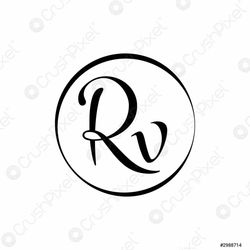

Hello everyone..Today here we gonna see some safety tips ..have a loOk on this guyzzz..
The recent hacking scandals that have dominated the headlines led me to reconsider all the various passwords I currently use at work and at home. Hacking, defined by Wikipedia as the means of finding out weaknesses in a computer or computer network, is a serious, constant threat to businesses and personal home offices alike. After doing some extensive research, I now have a better understanding of why I should create a truly secure password and how to properly do so. Below are the most important tips to remember when creating a password that not even Spider-Man can hack.
●The minimum recommended password length is 6-8 characters. The longer and more complex the password, the more likely it could withstand a brute-force attack used by hackers on encrypted data. According to Microsoft, passwords with 15 or more characters are no longer encrypted and stored in their hidden system files; therefore, completely eliminating the threat of being attacked by a hacker.
●The trick is to make your passwords complex but easy for you to remember and difficult for others to guess. One suggestion is to start with a meaningful phrase, remove the spaces, mix in 1-2 upper case letters, change 1-2 letters to numbers, deliberately misspell a word, or insert a punctuation mark. Here is an example: "I love social media" can be changed to "1luvSocailM3dai.". There is a mix of upper and lower case letters, numbers, misspelled words, and a period at the end.
●Another suggestion when using a meaningful sentence is to take the first letter of each word and apply the same techniques as above. So, "I love social media" can be changed to "iL:sm12!".
●An alternative to using a sentence is to join two unrelated words and again, apply the same techniques as above. For example: "hamburger and wireless" can be changed to "Hambugr&wirele88".
●It is not enough to simply use one technique; it must be a mix and meet the minimum number of characters.
●Do not use anyone's name or user name (your own, spouse, kids, pets, relatives, etc.).
●Do not use any words found in the dictionary, names of TV shows, or keyboard sequences (like qwerty).
●Do not use any phone number, birth date, license plate number, or any part of a social security number.
●Change your passwords every 4-6 weeks and do not reuse old passwords.
●Create a different password for your different accounts; meaning your email, bank account, Amazon, Pay Pal account should all have different passwords. As bothersome as it is to remember so many passwords, if one account is hacked, at least the others will not be jeopardized.
●Do not write your passwords down and store near or on your computer. If you must store the passwords, use hints instead to help you remember.
●Finally, always be wary of emails requesting you to change your password. It could be a scam! One exception would be if you forgot the password and requested it be reset.
The different password options are infinite; just use your imagination to come up with something that is completely random and only unique to you. Do you have any other helpful tips to add to the list? Have you had experience with being hacked? Share your story with me!






